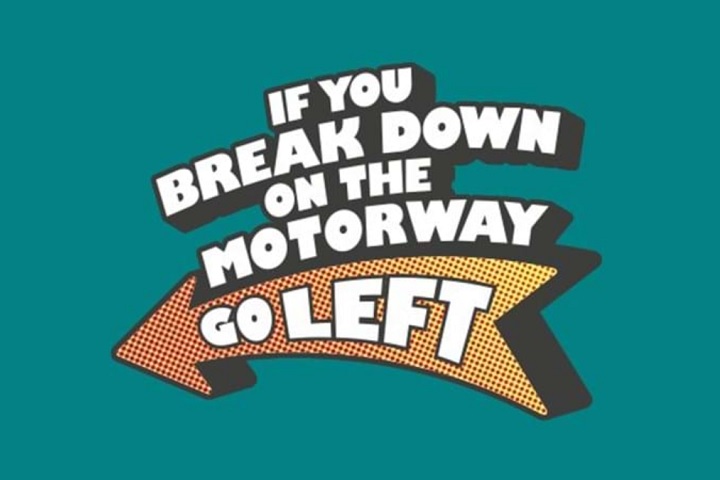
If you break down – go left! That’s the message in Highways England’s ‘biggest ever’ campaign to help drivers feel safer on the country’s motorways.
The new campaign explains what drivers should do if they encounter problems with their vehicle – and forms part of the DfT’s 18-point action plan to improve safety on, and public confidence of, smart motorways.
Millions of journeys are made every day on the country’s busiest roads – motorways and major A-roads – and Highways England says most are incident-free.
However, in 2019 there were almost 230,000 reported breakdowns across the Highways England network – including around 207,500 on motorways.
The campaign advises drivers who are unable to exit the motorway at the next junction or service area to:
- Put your left indicators on
- Move into the left lane
- Enter the next emergency area, or hard shoulder
- Put your hazard lights on
- Get behind a safety barrier where there is one
- Call Highways England on 0300 123 5000, then a breakdown provider for help
Set to the tune of the Pet Shop Boys’ hit version of the ‘Go West’ song, the campaign advert delivers a ‘clear, single-minded message’ – go left.
Highways England says testing with focus groups found the ‘distinctive characters, music and humour made the important message very memorable’ and hopes it will help people remember what to do in the event of an emergency.
Nick Harris, acting chief executive of Highways England, said: “No one plans to break down on a motorway, but if the unexpected happens then I want all motorists to know what to do so that they can keep themselves and others safe.
“Everyone wants a safe journey and raising awareness is a vital part of helping to make sure that happens.
“This new campaign and its ‘Go left’ message is designed to deliver crucial information in an accessible way and to help make motorways safer for the people who use them.
“This campaign is just one of the many steps we are taking to invest in our network with safety as our number one priority, doing everything we can to help drivers feel confident on our motorways.”
Smart Motorways – an issue the DfT is trying to tackle
Smart motorways have polarised opinion since they were first introduced in 2006 – and this is the latest attempt to improve public perception of their safety.
Until last year, there were two types of smart motorway used in the UK. The first, often referred to as ‘dynamic’, is where the hard shoulder is opened to traffic during busy periods. The second is where the hard shoulder is open all the time.
In October 2019, the Government launched a review into the safety of the schemes, with transport secretary Grant Shapps acknowledging that ministers had ‘concerns’.
The culmination of the five-month evidence stocktake was the 18-point action plan – including this new awareness campaign. However, the most significant change was the scraping of ‘confusing’ dynamic smart motorways.
The action plan addressed other controversial issues, such as the time taken to reach broken down vehicles in live lanes and the distance between emergency refuge areas.
At the time, Mr Shapps said the action plan will allow drivers to retain the benefits of smart motorways – while addressing the concerns that have been identified.
Highways England says Mr Shapps has requested a report updating progress on the works carried out to date.
Meanwhile in February 2021, the Transport Committee launched an inquiry into the benefits and safety of smart motorways, as well as their impact on reducing congestion.
Speaking to the Transport Committee prior to that launch, Mr Shapps said he did not want to carry on with the system of smart motorways which he had inherited on coming into office.
Comment on this story